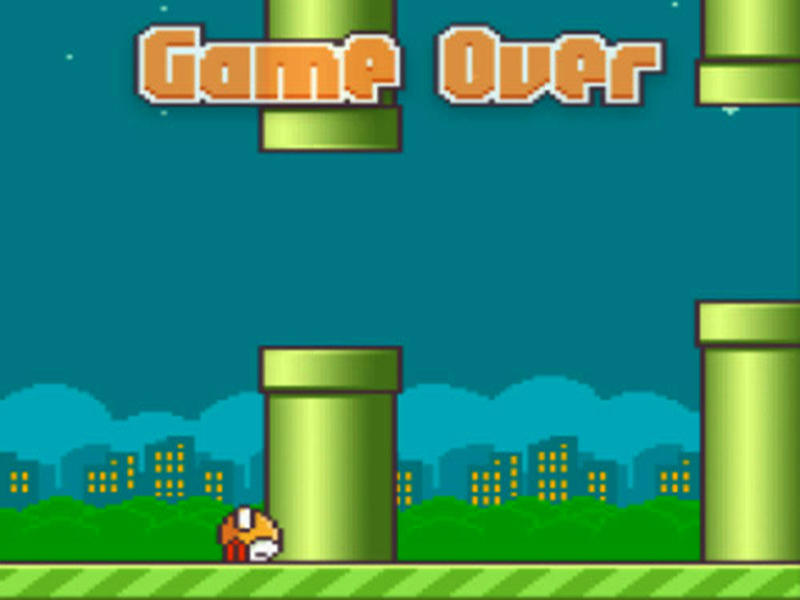
Should The Creator Of Flappy Bird Be An Example To Us All?
Written by Craig Rogers, Posted on , in Section Therapy News
Until a few days ago, the mobile game Flappy Bird was in the process of going viral, making it's creator more than $50,000 dollars per day. It was quickly becoming one of the most popular games available for smart phones, and seemed likely to enjoy even greater success in the future. Then, just a few days ago it suddenly vanished from the app stores. People were shocked that such a popular game would disappear from the market, and It has now been confirmed that it was taken down intentionally by creator Dong Ngueyn because he believed that it "happened to become an addictive product. I think it has become a problem." Taking down a game that was in the process of experiencing this level of success is virtually unheard of and raises many questions about the nature of addictive video games and addictive products in general. Should other game designers follow Dong Ngueyn's example or is his fear that his product is addictive irrational?
What If Other Industries With Addictive Products Made Similar Choices?
Aninteresting question that the Flappy Bird situation raises is what would happen if other industries felt the same level of responsibility for their customers as Dong Ngueyn. Overnight, the cigarette and alcohol industries would collapse, fast food restaurants would stop serving customers, gun manufacturers would close their plants, and Coca Cola would collect their vending machines. This obviously isn't going to happen, and as consumers we should all keep in mind what this means. Unlike Dong Ngueyn, these corporations don't care about how their products impact us as long as we keep buying. Furthermore, the products these businesses sell are much more harmful to the general public than the game Flappy Birds. Though it would be impossible bring about a system in which corporations put morals over profits, we can hope that some individuals within these companies are inspired by the example Dong Ngueyn has set.
Are Gaming Products Actually Addictive?
With the rise of faster computers and more immersive video games, there have been numerous reports of gaming addiction impacting people's lives. There is some science in support of the fact that gaming can become addiction, with several different studies finding that using these products activates the reward center of a person's brain in a similar way to some types of drug use. Over time, the brain could begin to get used to this easy reward mechanism and become addicted. However, it is unclear how prevalent this type of addiction is and whether it is something that could even be diagnosed. It is also important to remember how few individuals ultimately become addicted to video games. Millions of people play video games on a regular basis and have no problem with developing an addiction. With the low prevalence of addiction upon use, it is important to question how real of an issue this actually is. Should we be labeling video games addictive and warning people to regulate their use of them if only a tiny percentage of the populations is potentially at risk? For many people the answer would be no, but Dong Ngueyn's choice to pull Flappy Birds indicates he doesn't feel the same way.
Is Dong Ngueyn's Choice Actually Helping People?
The real question that this whole situation raises is whether the choice to remove Flappy Bird from the marketplace is actually something that will help anybody? This is hard to answer, but it seems likely that it won't. Overall, very few people develop video game addictions and those who do are generally not engaged in mobile gaming. They're very well may be a handful of people who benefit from Dong Ngueyn's decision, but few people would expect him to pull his product over such a minimal potential downside. Despite the fact that his choice to remove Flappy Bird is unlikely to help very many people, it is admirable that Dong Ngueyn would make the choice to remove a product that he feels could potentially have a negative impact on consumers. Very few people who found themselves in similar circumstances would be able to bring themselves to stick to their moral code and turn down that level of fame and wealth. This type of conviction makes Dong Ngueyn someone we should all admire and emulate.
The Fall Of Flappy Bird Could Raise Awareness In Consumers
What the demise of Flappy Bird could potentially accomplish is a consumer awakening about the potential dangers of addictive products and the necessity for customers to be careful about what they consume. Without this awareness, every individual could be subject to the questionable decision making process of corporations who are more focused on having a healthy bottom line than the overall state of society. The next time you in a store or shopping online, before you make your purchase consider whether Dong Ngueyn would sell that product. In many cases, it is likely that he wouldn't.
